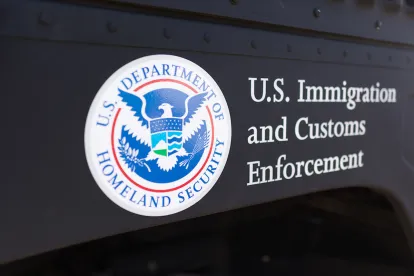US Customs and Border Protection (CBP) recently implemented mandatory forced labor requirements to participate in the Customs Trade Partnership Against Terrorism (CTPAT) and CTPAT Trade Compliance programs.
The previously announced CTPAT Trade Compliance forced labor requirements were recently published in the revised Handbook. In exchange for a voluntary commitment to self-monitor compliance, CTPAT confirmed that, effective immediately, importers will receive tangible forced labor benefits, including
-
priority review of admissibility packages in the event goods are detained due to forced labor concerns;
-
redelivery exemption for goods with suspected ties to forced labor; and
-
approval to move detained Without Release Order (WRO) shipments to bonded facilities.
These benefits address the criticism of the original CTPAT program as imposing burdensome self-compliance measures on importers without tangible benefits.
General Requirements
In March 2020, CBP integrated the former Importer-Self Assessment (ISA) into the CTPAT Trade Compliance program. This program is separate and apart from the original CTPAT security program, which also mandates that members have a documented social compliance program in place that addresses how the company will ensure forced labor is not in its supply chain as of January 2023.
To apply for the CTPAT Trade Compliance program, importers must meet certain eligibility standards:
-
Already be an existing Tier 2 or 3 CTPAT member in good standing;
-
A US or Canadian resident importer;
-
Have minimum two years import experience;
-
Have no CBP financial debt; and
-
Complete a Memorandum of Understanding (MOU) and Program Questionnaire.
CTPAT Trade Compliance members are required to work with CBP to protect their supply chains, identify supply chain security gaps, and implement specific security measures and best practices. The importer must also complete an Annual Notification Letter with certain requirements.
Forced Labor Requirements: You Have to Know Your Supply Chain!
In addition to other import-related requirements, the updated CTPAT Trade Compliance Handbook includes substantial new forced labor requirements:
-
Risk-Based Business Mapping: Perform a risk-based mapping of supply chain partners for potential risks of for forced labor (suppliers and regions).
-
Evidence of Implementation: Submit evidence of implementation of social compliance program (e.g., audits, internal trainings, etc.) within 12 months for existing members. Importers must be able to identify the parts of the supply chain that are most at risk of forced labor.
-
Code of Conduct: Partners must create a Code of Conduct statement representing their position against the use of forced labor within their supply chain and commitment to mapping. Partners must have policies and procedures in place to implement the Code of Conduct and retain evidence that such policies and procedures were implemented.
-
Due Diligence and Training: Provide suppliers with training about their social compliance program requirements in order to identify and prevent forced labor in the supply chain.
-
Remediation Plan: Maintain a remediation plan for partner organizations in the event that forced labor is identified in their supply chains. The plan must include the process for disclosing the forced labor to CBP.
-
Shared Best Practices: Share best practices with CTPAT Trade Compliance program to help mitigate the risk of forced labor.
While we generally recommend that importers implement these measures, membership in the CTPAT Trade Compliance Program imposes an affirmative obligation to comply with these requirements and provide evidence to CBP of compliance upon request.
What Do I Get For All That?
In exchange for complying with these requirements, CBP confirmed that CTPAT Trade Compliance members will receive significant forced labor benefits, including:
-
Priority Review for Shipments Detained Due to Forced Labor: CTPAT Trade Compliance members that have goods detained by CBP due to forced labor concerns will benefit from prioritized review of admissibility submissions. Importers must inform CBP of their CTPAT Trade Compliance member status at the time of detention to receive this benefit. As we discuss on our Uyghur Forced Labor Prevention Act (UFLPA) webpage, the UFLPA detention timeline under 19 CFR § 151.16 is much shorter than the WRO process. The initial admissibility determination must occur within 30 days of examination. Otherwise, the importer will be forced to protest. Importantly, if CBP does not make a decision within the statutorily defined time periods, merchandise will be deemed excluded. Expedited review may be the most important membership benefit if it results in a CBP determination within the statutory time periods.
-
Redelivery exemption for goods with suspected ties to forced labor: In instances where goods are cleared for entry into the US, but within 30 days CBP determines that the goods may have ties to forced labor, CBP may require redelivery of the goods to CBP until an admissibility determination can be made. CTPAP Trade Compliance members may hold these shipments in their facilities until CBP makes an admissibility determination, saving importers from shipping and other logistical and administrative costs to redeliver the goods to CBP.
-
Detained Withhold Release Order Shipments Move to Bonded Facility: CTPAT Trade Compliance members that have shipments detained in connection with a WRO will be allowed to move the goods to a bonded facility until CBP makes an admissibility determination. This may also save the importer expensive demurrage fees.
CTPAT Trade Compliance members will also receive other non-forced labor related benefits:
-
National Account Manager (NAM): The importer will be assigned a NAM, who will be an advisor and liaison between CBP Headquarters and the importer.
-
Expedited Rulings: Rulings and Internal Requests reviewed by the National Commodities Division will receive priority review and will be processed within 20 days (instead of the standard 30 days).
-
Prior Disclosures: In the event that CBP identifies a potential violation of 19 USC § 1592 or 1593a, the agency will issue a written notice regarding the errors and will allow 30 days from the date of the notification for the importer to file a prior disclosure. This is a significant benefit, as in the normal course, CBP issues a Notice of Investigation that would prevent the importer from filing a disclosure that would limit possible penalties.
-
Removal from Focused Assessments (FAs): Members will not be subject to FA performed by Office of Trade; Regulatory Audit (RA). However, CBP may still subject importers to single-issue audits. This is also a significant benefit, as FAs can be extremely intrusive and take several years to resolve.
-
Front of Line Exams and Reduced Examination Rates: This should expedite release through the border.
-
Penalty Mitigation: Membership will be taken into consideration in the event that penalties are assessed.
Should Importers Join CTPAT Trade Compliance?
As detentions relating to forced labor are on the rise, importers should assess the benefits of CTPAT Trade Compliance membership, particularly because member detention submissions will be prioritized.



 />i
/>i

